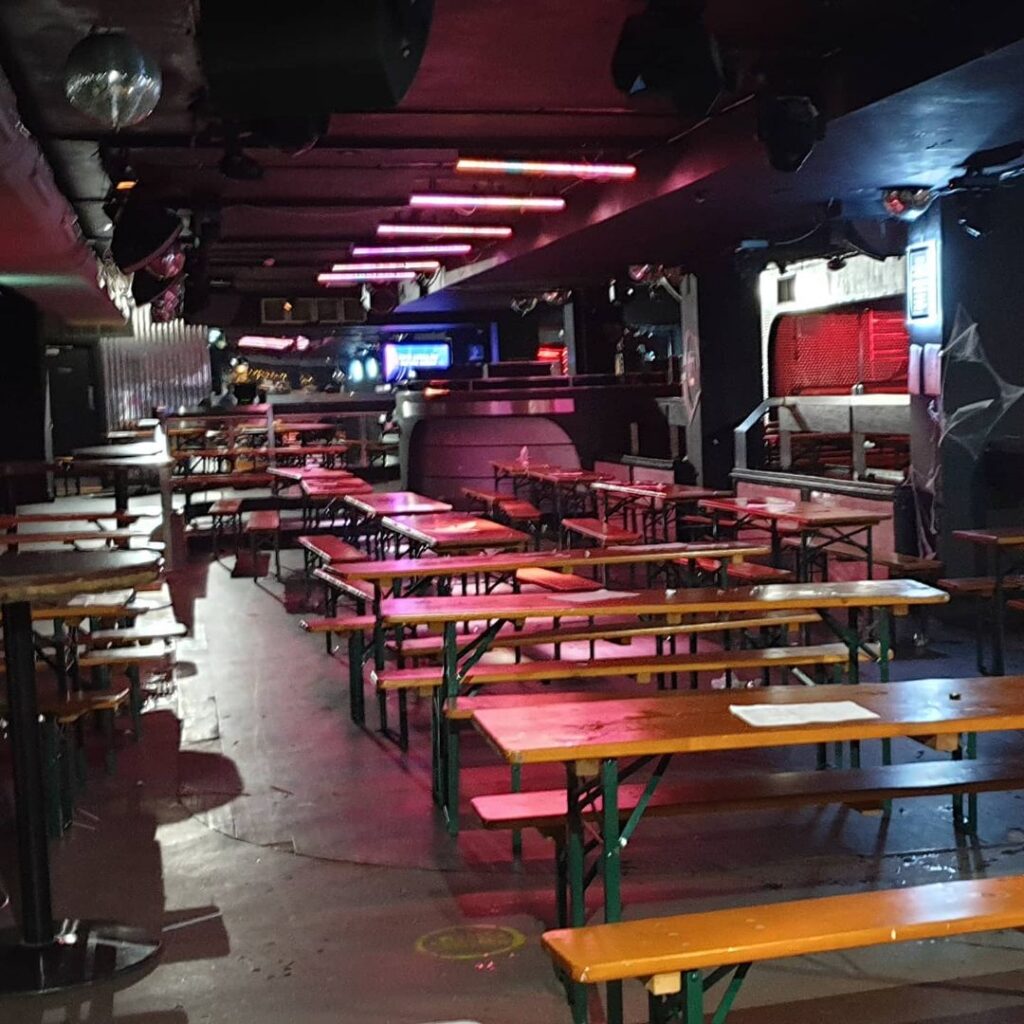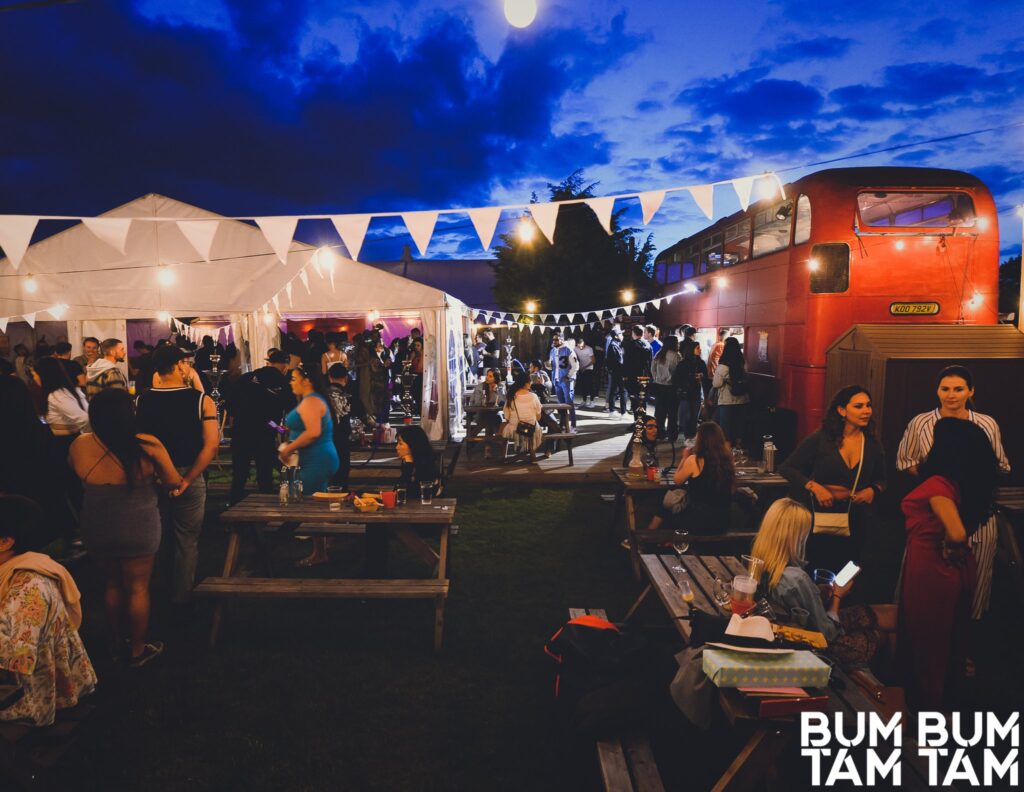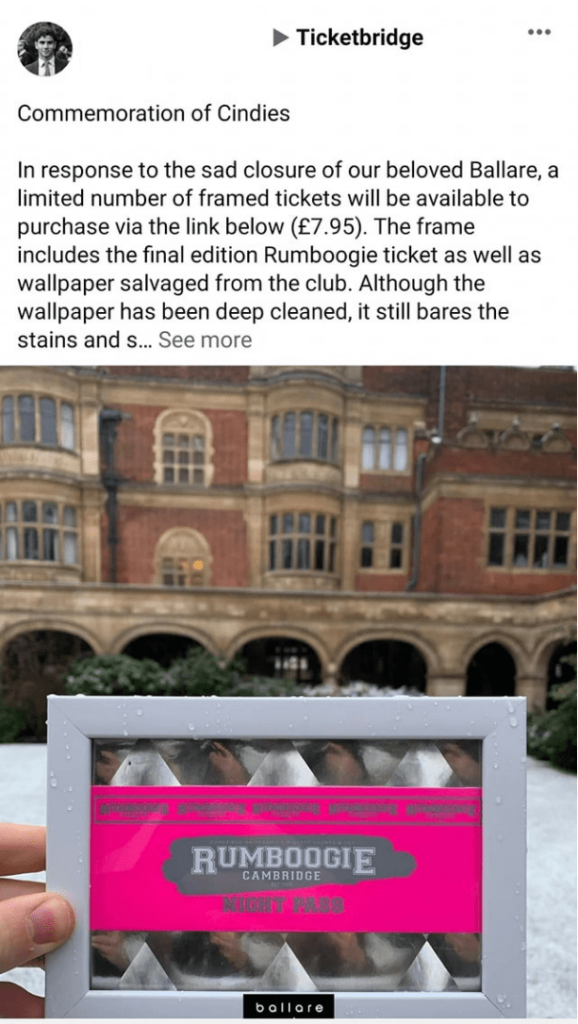The thumping bass, the vibrant lights, and the electric energy of a crowded dance floor – these are the quintessential elements of a night out in Britain. But then came the night when everything changed. The emergence of the COVID-19 pandemic brought the world to a screeching halt, and the impact on the UK’s vibrant nightlife scene, particularly its beloved nightclubs, was profound.
The Hospitality Industry’s Nightmarish Challenge
As lockdown rolled out across the UK, the hospitality industry, including nightclubs, faced an unprecedented challenge. The lights went out, and the music faded away. Nightclubs, traditionally a sanctuary for partygoers and a hub of social interaction, fell silent. For an industry known for its resilience, this was a heavy blow.
In an attempt to curb the spread of the virus, clubs were among the first venues ordered by the government to close their doors, and they remained shuttered for months on end. The nightlife industry, which once contributed significantly to the UK’s economy and culture, found itself in dire straits.
Nightclubs had always been more than just places to dance and have a good time; they were where friendships were made, relationships blossomed, and memories etched into the collective consciousness of a generation. It was where people celebrated life and its endless possibilities, where they found a sense of belonging and joy.
The Social Impact of Covid on Young People
While the impact of lockdowns was felt by everyone, young people, particularly those in the 18-25 age group, bore a unique burden. For them, nightclubs and bars were not just places to dance and have a good time; they were essential outlets for socialization and a way to unwind after a long week. The temporary loss of these spaces disrupted the social fabric of a generation.
These venues weren’t just about music and dancing; they were about connection, community, and coming of age. Young people missed the opportunity to meet new friends, build relationships, and simply experience the thrill of being young. The mental health toll on this demographic was significant.
The absence of nightclubs meant more than just missing a night out; it meant missing the camaraderie, the laughter, and the sheer exuberance that comes from being part of a crowd, swaying to the same rhythm, sharing stories, and forging bonds. It was the loss of a vital chapter in the book of youth, a chapter that could never be revisited.
For many young people, these venues represented an escape from the daily grind, a space where they could temporarily shed their worries and responsibilities and let loose. The void left by the closure of nightclubs was not just about the absence of music; it was about the absence of a refuge from the struggles and anxieties of everyday life.
The “Sit-Down” Rules and Music Volume Limitations

As lockdown restrictions eased, the hospitality industry was allowed to reopen, but not without severe limitations. To ensure apparent safety, nightclubs had to adhere to strict “sit-down” rules. Dance floors were off-limits, and social distancing measures made the once-packed venues feel eerily empty. These rules, while necessary, completely changed the nightclub experience.
For an industry built on the foundations of freedom and spontaneity, the enforced “sit-down” rules were a harsh paradox. The thrill of dancing in a sea of bodies, of feeling the collective heartbeat of a crowd, was replaced by the stillness of seated patrons, all maintaining a careful distance.
Additionally, music volume limitations added another layer of complexity. Nightclubs, known for their booming sound systems, were forced to keep the volume at a level that allowed for conversations without raising one’s voice; supposedly, this was to stop customers from leaning into each other to speak, a poorly thought-through effort to reduce transmission. This was a stark departure from the immersive and high-energy atmosphere clubbers used to.
In an environment where the music was as much a part of the experience as the people and the atmosphere, the lowered volume was akin to dimming the lights on a Broadway stage. The club experience, already marred by the absence of dancing, felt incomplete without the music soaring through the veins and hearts of those in attendance.
The “LET US DANCE” Campaign
In the face of these challenges, a movement was born. The “LET US DANCE” campaign, initiated by the Night Time Industries Association (NTIA), sought to bring attention to the plight of the nightlife industry and call for government support. It aimed to highlight the cultural, economic, and social significance of nightlife in the UK.
The campaign underscored the need for tailored support measures to help nightclubs and venues survive the crisis. Clubs, promoters, DJs, and fans came together to raise their voices, emphasizing that the nightlife sector was not just about partying but an essential part of the UK’s cultural identity, helping people foster social connections that stayed with them for life.
The #LETUSDANCE campaign echoed the sentiments of countless individuals who had found solace, inspiration, and community in the heartbeat of nightclubs. It served as a reminder that these venues were not just buildings; they were institutions that had woven themselves over decades into the fabric of British culture.

The Way Forward: A New Dawn for Nightlife
While the impact of lockdown on the UK’s nightlife industry has been profound, there are signs of a new beginning. As the nation gradually emerged from the grips of the pandemic, clubs and venues adapted to the changing landscape. Some introduced outdoor events and daytime parties, providing a fresh take on the traditional club experience.

The industry’s resilience was further demonstrated by the use of technology, with virtual DJ sets and live-streamed performances becoming the norm. This not only provided a platform for DJs, clubs, and promoters to connect with their audiences but also allowed clubbers to enjoy a taste of the nightlife from the safety of their homes.
As we look to the future, there’s a glimmer of hope for the revival of the UK’s once-thriving nightlife. The #LETUSDANCE campaign ignited the beginning of a movement, and the unwavering passion of those who cherish the night is keeping the dance floors of the UK alive. Slowly but surely, they are returning to something familiar – scarred, but not defeated.
Conclusion: The Night’s Beat Goes On
The night where everything changed will forever be etched into the memory of the UK’s nightlife scene. The challenges were immense, and the impact profound, but the beat goes on. Nightclubs, with their pulsating energy and vibrant culture, have proven time and again that they can adapt and thrive in the face of adversity.
The future of nightlife in the UK is a testament to resilience, innovation, and the unwavering spirit of not just the industry, but the customers we serve. Our nightlife has long been the heartbeat of the nation’s social fuel. As dance floors come back to life, the echoes of that awful time will serve as a reminder of the strength and unity that carried the UK’s nightlife through its darkest hour.
The night is young, and so is the spirit of a nation that knows how to dance, even in the face of change. In a world that can change in an instant, the nightlife industry is ready to move to a new beat and write a new chapter in its vibrant history.
In loving memory of Ballare, a venue I worked at until the end.
Ballare served customers under serveral names for decades – Cindies, as it was know, became so infamous it was introduced to Cambridge University students in their course inductions.

I want to thank Deltic (now REKOM UK) for the thoughtful and human way they dealt with the Covid-19 pandemic, protecting their employees, myself included, as much as possible, for as long as possible.
